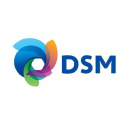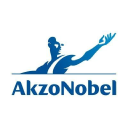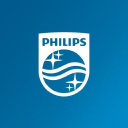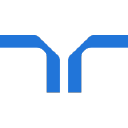DSM.AS

Koninklijke DSM N.V.
DSM.AS
(1.2)114,05 EUR
-3.57% ROA
1.82% ROE
107.49x PER
763.733.544,00 EUR
28.13% DER
0% Yield
4.3% NPM
Koninklijke DSM N.V. Stock Analysis
Koninklijke DSM N.V. Fundamental Analysis
Fundamental analysis in stock investing is like studying the foundation of a house before buying it. It involves looking at a company's financial health, like its earnings, assets, and debts, to determine if it's a good investment based on its fundamental strength and potential for growth.
| # | Analysis | Rating |
|---|---|---|
| 1 |
DER
The stock has a minimal amount of debt (28%) relative to its ownership, showcasing a strong financial position and lower risk for investors. |
|
| 2 |
ROE
ROE in an average range (4.89%) suggests satisfactory profitability and decent utilization of shareholders' equity. |
|
| 3 |
PBV
The stock's PBV ratio (1.96x) reflects a fair valuation, making it an attractive option for investors seeking balanced opportunities. |
|
| 4 |
Buffet Intrinsic Value
The company's stock seems undervalued (1.762) by Warren Buffett's formula, indicating a promising investment opportunity as its intrinsic value exceeds the market price. |
|
| 5 |
ROA
The stock's ROA (-9.23%) suggests that it's struggling to generate profits from its assets, making it a risky choice for investment. |
|
| 6 |
Revenue Growth
Company has experienced no growth in revenue over the past three years, suggesting limited profitability and making it a less desirable investment opportunity. |
|
| 7 |
Net Profit Growth
Over the past five years, this company's net profit has failed to exhibit any growth, indicating a stagnant financial performance and making it a less favorable choice for potential investors. |
|
| 8 |
Assets Growth
Company's revenue has stayed stagnant, showing no signs of improvement and making it a less favorable choice. |
|
| 9 |
Graham Number
The company's Graham number suggests that its stock price is overestimated, implying that it may not be a promising investment opportunity. |
|
| 10 |
Dividend Growth
The company's dividend growth has shown no improvement in the past three years, making it a less attractive investment option for those seeking increasing returns. |
|
| 11 |
Dividend
No dividends from the company in the past three years raises doubts about its profitability for shareholders. |
Koninklijke DSM N.V. Technical Analysis
Technical analysis in stock investing is like reading the patterns on a weather map to predict future weather conditions. It involves studying past stock price movements and trading volumes to make predictions about where a stock's price might go next, without necessarily looking at the company's financial health.
| # | Analysis | Recommendation |
|---|---|---|
| 1 | Awesome Oscillator | Buy |
| 2 | MACD | Sell |
| 3 | RSI | Hold |
| 4 | Stoch RSI | Sell |
Koninklijke DSM N.V. Price Chart
Financial Statements
Financial statements are like report cards for companies. They show how much money a company makes (income statement), what it owns and owes (balance sheet), and where it spends its money (cash flow statement), helping stock investors understand if a company is healthy and worth investing in.
Income Statements
An income statement for a company is like a scoreboard for its profits and losses. It shows how much money the company made (revenue) and how much it spent to make that money (expenses), helping stock investors see if a company is making a profit or not.
Revenue in stock investing is the total amount of money a company earns from its sales, and it's a key factor that investors consider to assess a company's financial performance and growth potential.
| Year | Revenue | Growth |
|---|---|---|
| 1998 | 6.361.000.000 | |
| 1999 | 6.333.000.000 | -0.44% |
| 2000 | 8.090.000.000 | 21.72% |
| 2001 | 7.970.000.000 | -1.51% |
| 2002 | 6.665.000.000 | -19.58% |
| 2003 | 6.050.000.000 | -10.17% |
| 2004 | 7.879.000.000 | 23.21% |
| 2005 | 8.195.000.000 | 3.86% |
| 2006 | 8.380.000.000 | 2.21% |
| 2007 | 8.757.000.000 | 4.31% |
| 2008 | 9.297.000.000 | 5.81% |
| 2009 | 8.322.000.000 | -11.72% |
| 2010 | 9.050.000.000 | 8.04% |
| 2011 | 9.048.000.000 | -0.02% |
| 2012 | 9.131.000.000 | 0.91% |
| 2013 | 9.051.000.000 | -0.88% |
| 2014 | 9.181.000.000 | 1.42% |
| 2015 | 7.722.000.000 | -18.89% |
| 2016 | 7.920.000.000 | 2.5% |
| 2017 | 8.632.000.000 | 8.25% |
| 2018 | 9.267.000.000 | 6.85% |
| 2019 | 9.010.000.000 | -2.85% |
| 2020 | 8.106.000.000 | -11.15% |
| 2021 | 9.204.000.000 | 11.93% |
| 2022 | 8.550.000.000 | -7.65% |
Research and Development Expenses are the costs a company incurs to create and improve its products or services, which can be important for investors to evaluate a company's innovation and potential for future growth.
| Year | Research and Development Expenses | Growth |
|---|---|---|
| 1998 | 0 | |
| 1999 | 0 | 0% |
| 2000 | 0 | 0% |
| 2001 | 0 | 0% |
| 2002 | 0 | 0% |
| 2003 | 0 | 0% |
| 2004 | 0 | 0% |
| 2005 | 0 | 0% |
| 2006 | 0 | 0% |
| 2007 | 0 | 0% |
| 2008 | 0 | 0% |
| 2009 | 0 | 0% |
| 2010 | 338.000.000 | 100% |
| 2011 | 378.000.000 | 10.58% |
| 2012 | 381.000.000 | 0.79% |
| 2013 | 351.000.000 | -8.55% |
| 2014 | 322.000.000 | -9.01% |
| 2015 | 330.000.000 | 2.42% |
| 2016 | 309.000.000 | -6.8% |
| 2017 | 334.000.000 | 7.49% |
| 2018 | 348.000.000 | 4.02% |
| 2019 | 349.000.000 | 0.29% |
| 2020 | 398.000.000 | 12.31% |
| 2021 | 323.000.000 | -23.22% |
| 2022 | 0 | 0% |
General and Administrative Expenses are the costs a company incurs to run its day-to-day operations, such as office rent, salaries, and utilities, which investors consider to understand a company's overall efficiency and management effectiveness.
| Year | General and Administrative Expenses | Growth |
|---|---|---|
| 1998 | 0 | |
| 1999 | 0 | 0% |
| 2000 | 0 | 0% |
| 2001 | 0 | 0% |
| 2002 | 0 | 0% |
| 2003 | 0 | 0% |
| 2004 | 0 | 0% |
| 2005 | 1.352.000.000 | 100% |
| 2006 | 1.332.000.000 | -1.5% |
| 2007 | 0 | 0% |
| 2008 | 1.466.000.000 | 100% |
| 2009 | 1.532.000.000 | 4.31% |
| 2010 | 380.000.000 | -303.16% |
| 2011 | 487.000.000 | 21.97% |
| 2012 | 492.000.000 | 1.02% |
| 2013 | 458.000.000 | -7.42% |
| 2014 | 476.000.000 | 3.78% |
| 2015 | 512.000.000 | 7.03% |
| 2016 | 552.000.000 | 7.25% |
| 2017 | 524.000.000 | -5.34% |
| 2018 | 530.000.000 | 1.13% |
| 2019 | 525.000.000 | -0.95% |
| 2020 | 469.000.000 | -11.94% |
| 2021 | 517.000.000 | 9.28% |
| 2022 | 0 | 0% |
EBITDA stands for Earnings Before Interest, Taxes, Depreciation, and Amortization. It is a measure that helps stock investors analyze a company's profitability by looking at its earnings without considering certain expenses. This helps to get a clearer picture of the company's financial performance and its ability to generate cash flow.
| Year | EBITDA | Growth |
|---|---|---|
| 1998 | 1.056.000.000 | |
| 1999 | 1.012.000.000 | -4.35% |
| 2000 | 1.254.000.000 | 19.3% |
| 2001 | 1.042.000.000 | -20.35% |
| 2002 | 450.000.000 | -131.56% |
| 2003 | 793.000.000 | 43.25% |
| 2004 | 972.000.000 | 18.42% |
| 2005 | 1.330.000.000 | 26.92% |
| 2006 | 1.262.000.000 | -5.39% |
| 2007 | 1.241.000.000 | -1.69% |
| 2008 | 1.309.000.000 | 5.19% |
| 2009 | 1.187.000.000 | -10.28% |
| 2010 | 816.000.000 | -45.47% |
| 2011 | 1.451.000.000 | 43.76% |
| 2012 | 1.101.000.000 | -31.79% |
| 2013 | 1.268.000.000 | 13.17% |
| 2014 | 1.176.000.000 | -7.82% |
| 2015 | 1.069.000.000 | -10.01% |
| 2016 | 1.127.000.000 | 5.15% |
| 2017 | 1.314.000.000 | 14.23% |
| 2018 | 1.733.000.000 | 24.18% |
| 2019 | 1.517.000.000 | -14.24% |
| 2020 | 1.402.000.000 | -8.2% |
| 2021 | 1.710.000.000 | 18.01% |
| 2022 | 1.345.000.000 | -27.14% |
Gross profit is the money a company makes from selling its products or services after subtracting the cost of producing or providing them, and it is an important measure for investors to understand a company's profitability.
| Year | Gross Profit | Growth |
|---|---|---|
| 1998 | 1.056.000.000 | |
| 1999 | 1.012.000.000 | -4.35% |
| 2000 | 1.254.000.000 | 19.3% |
| 2001 | 1.042.000.000 | -20.35% |
| 2002 | 588.000.000 | -77.21% |
| 2003 | 6.050.000.000 | 90.28% |
| 2004 | 7.879.000.000 | 23.21% |
| 2005 | 3.857.000.000 | -104.28% |
| 2006 | 3.826.000.000 | -0.81% |
| 2007 | 3.964.000.000 | 3.48% |
| 2008 | 4.313.000.000 | 8.09% |
| 2009 | 4.363.000.000 | 1.15% |
| 2010 | 2.452.000.000 | -77.94% |
| 2011 | 2.521.000.000 | 2.74% |
| 2012 | 2.412.000.000 | -4.52% |
| 2013 | 2.486.000.000 | 2.98% |
| 2014 | 2.403.000.000 | -3.45% |
| 2015 | 2.451.000.000 | 1.96% |
| 2016 | 2.658.000.000 | 7.79% |
| 2017 | 2.933.000.000 | 9.38% |
| 2018 | 3.405.000.000 | 13.86% |
| 2019 | 3.053.000.000 | -11.53% |
| 2020 | 2.776.000.000 | -9.98% |
| 2021 | 3.164.000.000 | 12.26% |
| 2022 | 2.528.000.000 | -25.16% |
Net income in stock investing is like the money a company actually gets to keep as profit after paying all its bills, and it's an important measure to understand how well a company is doing financially.
| Year | Net Profit | Growth |
|---|---|---|
| 1998 | 415.000.000 | |
| 1999 | 371.000.000 | -11.86% |
| 2000 | 580.000.000 | 36.03% |
| 2001 | 1.415.000.000 | 59.01% |
| 2002 | 1.188.000.000 | -19.11% |
| 2003 | 139.000.000 | -754.68% |
| 2004 | 262.000.000 | 46.95% |
| 2005 | 520.000.000 | 49.62% |
| 2006 | 552.000.000 | 5.8% |
| 2007 | 434.000.000 | -27.19% |
| 2008 | 571.000.000 | 23.99% |
| 2009 | 337.000.000 | -69.44% |
| 2010 | 487.000.000 | 30.8% |
| 2011 | 814.000.000 | 40.17% |
| 2012 | 288.000.000 | -182.64% |
| 2013 | 271.000.000 | -6.27% |
| 2014 | 145.000.000 | -86.9% |
| 2015 | 88.000.000 | -64.77% |
| 2016 | 621.000.000 | 85.83% |
| 2017 | 1.769.000.000 | 64.9% |
| 2018 | 1.077.000.000 | -64.25% |
| 2019 | 758.000.000 | -42.08% |
| 2020 | 506.000.000 | -49.8% |
| 2021 | 747.000.000 | 32.26% |
| 2022 | 368.000.000 | -102.99% |
EPS, or earnings per share, is a measure that shows how much profit a company has earned for each outstanding share of its stock, and it is important for stock investors as it helps understand the profitability of a company and compare it with other companies in the market.
| Year | Earning per Share (EPS) | Growth |
|---|---|---|
| 1998 | 2 | |
| 1999 | 2 | -100% |
| 2000 | 3 | 50% |
| 2001 | 7 | 71.43% |
| 2002 | 6 | -16.67% |
| 2003 | 1 | 0% |
| 2004 | 1 | 100% |
| 2005 | 3 | 50% |
| 2006 | 3 | 0% |
| 2007 | 2 | 0% |
| 2008 | 3 | 33.33% |
| 2009 | 2 | -50% |
| 2010 | 3 | 33.33% |
| 2011 | 5 | 25% |
| 2012 | 2 | -300% |
| 2013 | 2 | 0% |
| 2014 | 1 | 0% |
| 2015 | 0 | 0% |
| 2016 | 4 | 100% |
| 2017 | 10 | 70% |
| 2018 | 6 | -66.67% |
| 2019 | 4 | -50% |
| 2020 | 3 | -100% |
| 2021 | 4 | 50% |
| 2022 | 2 | -100% |
Cashflow Statements
Cashflow statements show the movement of money in and out of a company, helping stock investors understand how much money a company makes and spends. By examining cashflow statements, investors can assess if a company is generating enough cash to pay its bills, invest in growth, and provide returns to stockholders.
Free cash flow is the leftover cash that a company generates after covering its operating expenses and capital expenditures, which is important for stock investors as it shows how much money a company has available to invest in growth, pay dividends, or reduce debt.
| Year | Free Cashflow | Growth |
|---|---|---|
| 1998 | 807.000.000 | |
| 1999 | 610.000.000 | -32.3% |
| 2000 | 883.000.000 | 30.92% |
| 2001 | 762.000.000 | -15.88% |
| 2002 | 650.000.000 | -17.23% |
| 2003 | 158.000.000 | -311.39% |
| 2004 | 899.000.000 | 82.42% |
| 2005 | 300.000.000 | -199.67% |
| 2006 | 172.000.000 | -74.42% |
| 2007 | 391.000.000 | 56.01% |
| 2008 | 319.000.000 | -22.57% |
| 2009 | 819.000.000 | 61.05% |
| 2010 | 687.000.000 | -19.21% |
| 2011 | 405.000.000 | -69.63% |
| 2012 | 44.000.000 | -820.45% |
| 2013 | 154.000.000 | 71.43% |
| 2014 | 155.000.000 | 0.65% |
| 2015 | 153.000.000 | -1.31% |
| 2016 | 523.000.000 | 70.75% |
| 2017 | 441.000.000 | -18.59% |
| 2018 | 698.000.000 | 36.82% |
| 2019 | 744.000.000 | 6.18% |
| 2020 | 868.000.000 | 14.29% |
| 2021 | 850.000.000 | -2.12% |
| 2022 | 160.500.000 | -429.6% |
Operating cash flow represents the cash generated or consumed by a company's day-to-day operations, excluding external investing or financing activities, and is crucial for stock investors as it shows how much cash a company is generating from its core business operations.
| Year | Operating Cashflow | Growth |
|---|---|---|
| 1998 | 811.000.000 | |
| 1999 | 651.000.000 | -24.58% |
| 2000 | 900.000.000 | 27.67% |
| 2001 | 764.000.000 | -17.8% |
| 2002 | 658.000.000 | -16.11% |
| 2003 | 591.000.000 | -11.34% |
| 2004 | 911.000.000 | 35.13% |
| 2005 | 693.000.000 | -31.46% |
| 2006 | 630.000.000 | -10% |
| 2007 | 825.000.000 | 23.64% |
| 2008 | 910.000.000 | 9.34% |
| 2009 | 1.276.000.000 | 28.68% |
| 2010 | 1.103.000.000 | -15.68% |
| 2011 | 882.000.000 | -25.06% |
| 2012 | 730.000.000 | -20.82% |
| 2013 | 889.000.000 | 17.89% |
| 2014 | 808.000.000 | -10.02% |
| 2015 | 696.000.000 | -16.09% |
| 2016 | 1.018.000.000 | 31.63% |
| 2017 | 996.000.000 | -2.21% |
| 2018 | 1.391.000.000 | 28.4% |
| 2019 | 1.385.000.000 | -0.43% |
| 2020 | 1.494.000.000 | 7.3% |
| 2021 | 1.427.000.000 | -4.7% |
| 2022 | 333.000.000 | -328.53% |
Capex, short for capital expenditures, refers to the money a company spends on acquiring or upgrading tangible assets like buildings, equipment, or technology, which is important for stock investors as it indicates how much a company is investing in its infrastructure to support future growth and profitability.
| Year | Capital Expenditure | Growth |
|---|---|---|
| 1998 | 4.000.000 | |
| 1999 | 41.000.000 | 90.24% |
| 2000 | 17.000.000 | -141.18% |
| 2001 | 2.000.000 | -750% |
| 2002 | 8.000.000 | 75% |
| 2003 | 433.000.000 | 98.15% |
| 2004 | 12.000.000 | -3508.33% |
| 2005 | 393.000.000 | 96.95% |
| 2006 | 458.000.000 | 14.19% |
| 2007 | 434.000.000 | -5.53% |
| 2008 | 591.000.000 | 26.57% |
| 2009 | 457.000.000 | -29.32% |
| 2010 | 416.000.000 | -9.86% |
| 2011 | 477.000.000 | 12.79% |
| 2012 | 686.000.000 | 30.47% |
| 2013 | 735.000.000 | 6.67% |
| 2014 | 653.000.000 | -12.56% |
| 2015 | 543.000.000 | -20.26% |
| 2016 | 495.000.000 | -9.7% |
| 2017 | 555.000.000 | 10.81% |
| 2018 | 693.000.000 | 19.91% |
| 2019 | 641.000.000 | -8.11% |
| 2020 | 626.000.000 | -2.4% |
| 2021 | 577.000.000 | -8.49% |
| 2022 | 172.500.000 | -234.49% |
Balance Sheet
Balance sheets provide a snapshot of a company's financial health and its assets (such as cash, inventory, and property) and liabilities (like debts and obligations) at a specific point in time. For stock investors, balance sheets help assess the company's overall worth and evaluate its ability to meet financial obligations and support future growth.
Equity refers to the ownership interest or stake that shareholders have in a company, representing their claim on its assets and earnings after all debts and liabilities are paid.
| Year | Equity | Growth |
|---|---|---|
| 1998 | 2.238.000.000 | |
| 1999 | 2.535.000.000 | 11.72% |
| 2000 | 3.070.000.000 | 17.43% |
| 2001 | 4.298.000.000 | 28.57% |
| 2002 | 5.186.000.000 | 17.12% |
| 2003 | 4.961.000.000 | -4.54% |
| 2004 | 4.834.000.000 | -2.63% |
| 2005 | 5.541.000.000 | 12.76% |
| 2006 | 5.855.000.000 | 5.36% |
| 2007 | 5.383.000.000 | -8.77% |
| 2008 | 4.695.000.000 | -14.65% |
| 2009 | 5.011.000.000 | 6.31% |
| 2010 | 5.577.000.000 | 10.15% |
| 2011 | 5.974.000.000 | 6.65% |
| 2012 | 6.042.000.000 | 1.13% |
| 2013 | 6.098.000.000 | 0.92% |
| 2014 | 5.936.000.000 | -2.73% |
| 2015 | 5.631.000.000 | -5.42% |
| 2016 | 6.180.000.000 | 8.88% |
| 2017 | 7.065.000.000 | 12.53% |
| 2018 | 7.815.000.000 | 9.6% |
| 2019 | 7.835.000.000 | 0.26% |
| 2020 | 7.487.000.000 | -4.65% |
| 2021 | 9.397.000.000 | 20.33% |
| 2022 | 10.105.000.000 | 7.01% |
Assets represent the valuable resources that a company owns, such as cash, inventory, property, and equipment, and understanding a company's assets helps investors assess its value and potential for generating future profits.
| Year | Assets | Growth |
|---|---|---|
| 1998 | 5.860.000.000 | |
| 1999 | 6.307.000.000 | 7.09% |
| 2000 | 7.847.000.000 | 19.63% |
| 2001 | 8.575.000.000 | 8.49% |
| 2002 | 8.996.000.000 | 4.68% |
| 2003 | 9.400.000.000 | 4.3% |
| 2004 | 8.936.000.000 | -5.19% |
| 2005 | 10.025.000.000 | 10.86% |
| 2006 | 10.091.000.000 | 0.65% |
| 2007 | 9.828.000.000 | -2.68% |
| 2008 | 9.653.000.000 | -1.81% |
| 2009 | 9.614.000.000 | -0.41% |
| 2010 | 10.480.000.000 | 8.26% |
| 2011 | 11.157.000.000 | 6.07% |
| 2012 | 11.966.000.000 | 6.76% |
| 2013 | 12.017.000.000 | 0.42% |
| 2014 | 12.126.000.000 | 0.9% |
| 2015 | 11.743.000.000 | -3.26% |
| 2016 | 12.958.000.000 | 9.38% |
| 2017 | 12.802.000.000 | -1.22% |
| 2018 | 13.641.000.000 | 6.15% |
| 2019 | 13.443.000.000 | -1.47% |
| 2020 | 14.364.000.000 | 6.41% |
| 2021 | 16.013.000.000 | 10.3% |
| 2022 | 0 | 0% |
Liabilities refer to the financial obligations or debts that a company owes to creditors or external parties, and understanding a company's liabilities is important for investors as it helps assess the company's financial risk and ability to meet its obligations.
| Year | Liabilities | Growth |
|---|---|---|
| 1998 | 3.622.000.000 | |
| 1999 | 3.772.000.000 | 3.98% |
| 2000 | 4.777.000.000 | 21.04% |
| 2001 | 4.277.000.000 | -11.69% |
| 2002 | 3.810.000.000 | -12.26% |
| 2003 | 4.439.000.000 | 14.17% |
| 2004 | 4.102.000.000 | -8.22% |
| 2005 | 4.484.000.000 | 8.52% |
| 2006 | 4.236.000.000 | -5.85% |
| 2007 | 4.445.000.000 | 4.7% |
| 2008 | 4.958.000.000 | 10.35% |
| 2009 | 4.603.000.000 | -7.71% |
| 2010 | 4.903.000.000 | 6.12% |
| 2011 | 5.183.000.000 | 5.4% |
| 2012 | 5.924.000.000 | 12.51% |
| 2013 | 5.919.000.000 | -0.08% |
| 2014 | 6.190.000.000 | 4.38% |
| 2015 | 6.112.000.000 | -1.28% |
| 2016 | 6.778.000.000 | 9.83% |
| 2017 | 5.737.000.000 | -18.15% |
| 2018 | 5.826.000.000 | 1.53% |
| 2019 | 5.608.000.000 | -3.89% |
| 2020 | 6.877.000.000 | 18.45% |
| 2021 | 6.616.000.000 | -3.94% |
| 2022 | 6.558.000.000 | -0.88% |
Koninklijke DSM N.V. Financial Ratio (TTM)
Valuation Metrics
- Revenue per Share
- 24.65
- Net Income per Share
- 1.06
- Price to Earning Ratio
- 107.49x
- Price To Sales Ratio
- 0.18x
- POCF Ratio
- 29.7
- PFCF Ratio
- 2.38
- Price to Book Ratio
- 1.96
- EV to Sales
- -0.47
- EV Over EBITDA
- -2.96
- EV to Operating CashFlow
- -2.99
- EV to FreeCashFlow
- -6.2
- Earnings Yield
- 0.01
- FreeCashFlow Yield
- 0.42
- Market Cap
- 0,76 Bil.
- Enterprise Value
- -1,99 Bil.
- Graham Number
- 37.3
- Graham NetNet
- -14.47
Income Statement Metrics
- Net Income per Share
- 1.06
- Income Quality
- 0.53
- ROE
- 0.02
- Return On Assets
- 0
- Return On Capital Employed
- -0.38
- Net Income per EBT
- 0.78
- EBT Per Ebit
- 0.24
- Ebit per Revenue
- 0.23
- Effective Tax Rate
- 0.22
Margins
- Sales, General, & Administrative to Revenue
- 0
- Research & Developement to Revenue
- 0
- Stock Based Compensation to Revenue
- 0
- Gross Profit Margin
- 0.3
- Operating Profit Margin
- 0.23
- Pretax Profit Margin
- 0.06
- Net Profit Margin
- 0.04
Dividends
- Dividend Yield
- 0
- Dividend Yield %
- 0
- Payout Ratio
- 0.94
- Dividend Per Share
- 0
Operating Metrics
- Operating Cashflow per Share
- 3.84
- Free CashFlow per Share
- 1.85
- Capex to Operating CashFlow
- -0.52
- Capex to Revenue
- -0.08
- Capex to Depreciation
- 1.17
- Return on Invested Capital
- 0.06
- Return on Tangible Assets
- -0.04
- Days Sales Outstanding
- 0
- Days Payables Outstanding
- 171.04
- Days of Inventory on Hand
- 283.54
- Receivables Turnover
- 0
- Payables Turnover
- 2.13
- Inventory Turnover
- 1.29
- Capex per Share
- -1.99
Balance Sheet
- Cash per Share
- 16,61
- Book Value per Share
- 58,27
- Tangible Book Value per Share
- -67.5
- Shareholders Equity per Share
- 58.27
- Interest Debt per Share
- 16.11
- Debt to Equity
- 0.28
- Debt to Assets
- 0
- Net Debt to EBITDA
- -4.1
- Current Ratio
- 3.15
- Tangible Asset Value
- -11,71 Bil.
- Net Current Asset Value
- 1,57 Bil.
- Invested Capital
- 0.28
- Working Capital
- 5,55 Bil.
- Intangibles to Total Assets
- 0
- Average Receivables
- 0,00 Bil.
- Average Payables
- 1,41 Bil.
- Average Inventory
- 2339000000
- Debt to Market Cap
- 3.72
Dividends
Dividends in stock investing are like rewards that companies give to their shareholders. They are a portion of the company's profits distributed to investors, typically in the form of cash payments, as a way for them to share in the company's success.
| Year | Dividends | Growth |
|---|---|---|
| 2000 | 2 | |
| 2001 | 2 | 0% |
| 2002 | 2 | 0% |
| 2003 | 2 | 0% |
| 2004 | 2 | 0% |
| 2005 | 2 | 0% |
| 2006 | 2 | 0% |
| 2007 | 2 | 50% |
| 2008 | 1 | -100% |
| 2009 | 1 | 0% |
| 2010 | 1 | 0% |
| 2011 | 1 | 0% |
| 2012 | 1 | 0% |
| 2013 | 2 | 0% |
| 2014 | 2 | 0% |
| 2015 | 2 | 0% |
| 2016 | 2 | 0% |
| 2017 | 1 | 0% |
| 2018 | 2 | 50% |
| 2019 | 2 | 0% |
| 2020 | 2 | 0% |
| 2021 | 2 | 0% |
| 2022 | 3 | 0% |
Koninklijke DSM N.V. Profile
About Koninklijke DSM N.V.
Koninklijke DSM N.V., a science-based company, engages in nutrition, health, and sustainable living businesses in the Netherlands, Switzerland, rest of Europe, North America, Latin America, China, rest of Asia, and internationally. It operates through Nutrition, Materials, and Innovation Center segments. The Nutrition segment offers animal nutrition and health products, including vitamins, premixes, carotenoids, enzymes, microbes, and eubiotics; human nutrition and health products comprising vitamins, nutritional lipids, minerals, carotenoids, nutraceuticals, digestive enzymes, probiotics, and prebiotics, as well as active pharmaceutical ingredients; premix, market-ready solutions, and personalized nutrition; human milk oligosaccharides; and skin and sun care, hair care, and aroma ingredients; omega-3 fatty acids; and specialty food enzymes, cultures, bio-preservation, texturizing hydrocolloids, sugar reduction, and savory taste solutions. The Materials segment provides specialty plastics used in components for the electrical and electronics, automotive, flexible food-packaging, and consumer goods industries; and Dyneema, a fiber solution for use in personal protection, workwear, sports apparel, outdoor equipment, ropes and slings, synthetic chains, and nets for the aquaculture, and renewable energy sectors. The Innovation Center segment offers biomedical materials, and medical device and material manufacturing technologies in the areas of cardiovascular, continence care, dental, diabetes management, gynecology, neurology, ophthalmology, orthopedic, peripheral vascular, plastic and reconstructive surgery, and wound management. It also commercializes yeast technology yeast for ethanol production. The company was founded in 1902 and is headquartered in Heerlen, the Netherlands.
- CEO
- Mr. Dimitri de Vreeze
- Employee
- 19.263
- Address
-
Het Overloon 1
Heerlen, 6411 TE
Koninklijke DSM N.V. Executives & BODs
| # | Name | Age |
|---|---|---|
| 1 |
Mr. Dimitri de Vreeze Co-Chief Executive Officer, Chief Operating Officer & Member of the Managing Board |
70 |
| 2 |
Mr. Paul Gilgen Head of Manufacturing & Purchasing of DSM Nutritional Products |
70 |
| 3 |
Ms. Lieke de Jong-Tops Senior Communications Mang. |
70 |
| 4 |
Mr. Luca Rosetto Senior Vice President of Operations - Nutritional Products |
70 |
| 5 |
Mr. Bruno Müller Head of Strategy & VITAL Project - Nutritional Products |
70 |
| 6 |
Ms. Cristina Monteiro Executive Vice President of People & Organization |
70 |
| 7 |
Mr. Manfred Eggersdorfer Senior Vice President of Nutrition Science & Advocacy |
70 |
| 8 |
Mr. Rob J. Atsma Head of Energie Beheer Nederland |
70 |
| 9 |
Mr. Dave Huizing Vice President of Investor Relations |
70 |
| 10 |
Mr. Hugh C. Welsh Gen. Counsel, Sec. & Pres of DSM North America |
70 |
| 11 |
Mr. Atul Thakrar Pres of Bio-Based Products & Services Unit |
70 |
| 12 |
Mr. Jan Wolters Head of Fine Chemicals |
70 |
| 13 |
Ms. Geraldine Matchett Co-Chief Executive Officer, Chief Financial Officer & Member of the Managing Board |
70 |
| 14 |
Mr. Philip Eykerman Pres of Food Specialties and Corporation Mergers & Acquisitions |
70 |
| 15 |
Ms. Patricia Malarkey Chief Innovation Officer |
70 |




